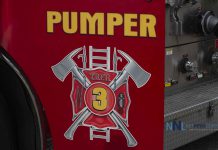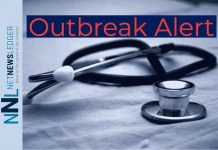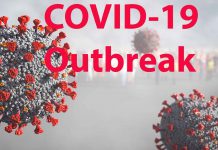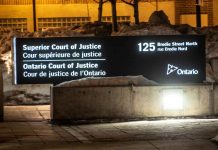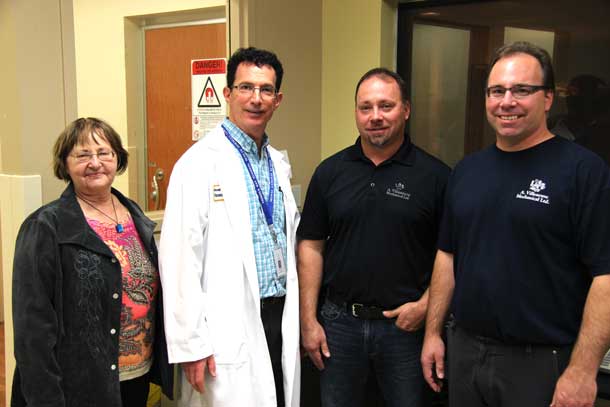

Supporting the Work at Thunder Bay Regional Research Institute
THUNDER BAY – HEALTH – The Villeneuve family is very hopeful about a lung disease research project at the Thunder Bay Regional Research Institute (TBRRI). It matters a lot to Sandra, Jason and Jeff because they lost their husband and father, Tony Villeneuve, to mesothelioma (cancer caused by asbestos exposure) in 2006, when diagnosis of the lung disease was difficult.
“My husband became sick at 63 and wasn’t able to be diagnosed,” says Sandra. “Then when he finally was, it was too late. This was heartbreaking for our family, so anything we can do to save people through early, effective diagnosis going forward will be really something.”
Thanks to a special fund created by a special annual event, support for lung cancer research, patient care and education has been ongoing since the year of Tony’s passing. The Anthony Villeneuve Memorial Endowment Fund was set up with the Thunder Bay Regional Health Sciences Foundation which supports lung disease initiatives at the Health Sciences Centre. An endowment is a long-term gift to a charity. The principal is protected and only the income from the interest is spent.
Funds for the Endowment fund are raised through the annual Tony Villeneuve Memorial Auto Rally, which Tony had participated in for years. Last fall, $25,000 from the Endowment was donated to a research project headed by TBRRI’s Dr. Mitchell Albert.
The Villeneuves met with Dr. Albert to discuss his Hyperpolarized Gas MRI Technology research project, which is developing a new imaging method for diagnosis and treatment staging of breathing disorders such as asthma, COPD, cystic fibrosis and lung cancer. This project is still in the research stage.
HP gas MRI produces high-quality images to find airway ventilation defects and to help clinicians learn more about breathing disorders. “For example,” says Dr. Albert, “we found that with asthma attacks, the airway ventilation defects almost always happen in the same place in the lung, which means asthma is a very localized disease. We didn’t know this before. We always thought asthma affected the whole lung. This is important to know because now treatments can be designed to treat asthma in a localized way.”
The donation is also being used to fund a brand new technology being developed by Dr. Albert. He is currently working on producing functional, high quality images, using an inhalant of inert fluorinated gas mixed with oxygen, that will enable the clinician to see whether a medication, like steroids, is working or not in a patient’s lungs and be able to make changes for better results. This project is still in the research stage as well.
“This project is a natural fit to what we set out to do with the car rally,” says Jeff, “which is to raise money to research and find a cure for mesothelioma. Dr. Albert is looking into a variety of lung diseases, this being one of them, so the money is being directed in a good way.”
It is important that news of this research spread adds Jason. “I’m sure a lot of people don’t realize this kind of research is going on. People out there who were exposed to asbestos in the 1940s to 60s need to know there is a way of detecting asbestos-related lung problems early and get checked out.” In turn, he says, this will inspire donations to research. “There are people on the fence about donating to research, but once they see results of something actually working, people are more moved to give.”
If you would like to support local research, you can make a donation to the Health Sciences Discovery Fund online (healthsciencesfoundation.ca) or by calling the Health Sciences Foundation at (807) 345-4673.



